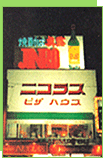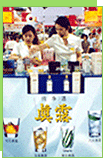|
|

HOME > JINRO Worldwide > Business Status Worldwide

|
 |
JINRO started making inroads into the overseas market by penetrating the Vietnamese market in 1968. From
Southeast Asia, JINRO went on to export JINRO SOJU to other countries such as West Germany in 1973, America in
1975, and Japan in 1979. Today, JINRO SOJU is being exported to more than 60 countries worldwide including
Argentina, Australia, Brazil, Canada, China, Germany, Guam, Italy, Indonesia, Mexico, Netherlands, Philippines, Singapore, Vietnam, and Kazakhstan.
In particular, JINRO SOJU’s performance in the Japanese market is impressive. Since JINRO SOJU became the no. 1
selling diluted SOJU as a single brand among 86 companies competing in the Japanese market in 1998, it has stayed
on the top spot for 7 years in a row from 1999 to 2004. As JINRO’s local corporation, JINRO JAPAN has been directly
managing the distribution network through the direct sales system since 2000, developing nationwide sales network by
opening branches in Osaka, Fukuoka, Sendai, Gansinetsu, Nagoya, and Hokkaido, developing alcohol beverage-related
foods using its own distribution network, and planning activities to help the refined image of Korean foods take root.
 |

When we first ventured into the Japanese market, we sold the same product sold in Korea
without adding or removing anything from it. It was a huge flop among Japanese customers,
who are known to be very particular about their food. Thus, we started developing a product
that fully reflects the characteristics of Japanese customers. We performed a comprehensive
analysis of competitors’ products in Japan, made prototypes by varying the ingredients and
their ratios, and conducted many tests directly with the Japanese customers.
As a result, we came up with “JINRO FOR EXPORT”, a new product that tastes completely
different from that sold in the domestic market. To satisfy the discriminating taste of
Japanese customers, we lowered the saccharinity and adjusted the aroma.
In other words, the new “JINRO” had the same alcohol content as the domestic product but
offered a simpler taste without the saccharinity. In addition to the localization of the SOJU
taste, we changed the design, increased the volume to 700㎖ or almost twice as large as
the highly popular 360㎖ volume of SOJU sold domestically to differentiate it from
the existing SOJU, and gave it a hint of whiskey, albeit indirectly.
We also had “JINRO” done in large red letters and placed at the center of the label and tried
to upgrade its image to an exotic and classy one.
The high-price policy played a big part as well.
Seeking to make inroads into the overseas market with highly competitive products, we
advanced into the Japanese market armed with the “high quality, high price” policy in
the
beginning. Other crucial factors for success include the great trust we have built with
the local distributors, symbiotic strategy, and comprehensive brand management. |
 |

After successfully establishing a foothold in Japan, JINRO is seeking to make inroads into
the Chinese market as its biggest goal this year. The company is pursuing its localization
strategy aggressively; it seeks to make the Chinese market its 2nd largest stronghold
in the world.
Released in Beijing in December 2000, “JINRO CLASSIC” comes in a classy package and
has 22% alcohol (375ml) content. As an alternative to the existing “bai jiu,” this clean and
smooth liquor goes well with Korean dishes (bulgogi: broiled beef). We are targeting
medium-sized to large Korean restaurants and middle-class people in their 20s and 30s
who are willing to try new things.
JINRO shall strengthen its sales basis focusing on the littoral zones including Shenyang,
Beijing, Shandong, and Shenzhen by taking advantage of the “Korean Wave” craze that is
currently sweeping China and the 2008 Beijing Olympics boom. For the 2nd phase, we shall
make inroads into the northeastern and northwestern regions. JINRO realized only
USD<?>1.6 million dollars in exports (including whiskey) to China in 2004, By 2009, we are
targeting the USD 10 million mark for the export of SOJU products and make China the 2nd
largest market for SOJU.
Finally, JINRO shall continue with its international PR activities and strengthen the local
distribution network in each country to make JINRO SOJU a global liquor brand and emerge
as the world’s no. 1 alcohol beverages maker.
|
|
|















